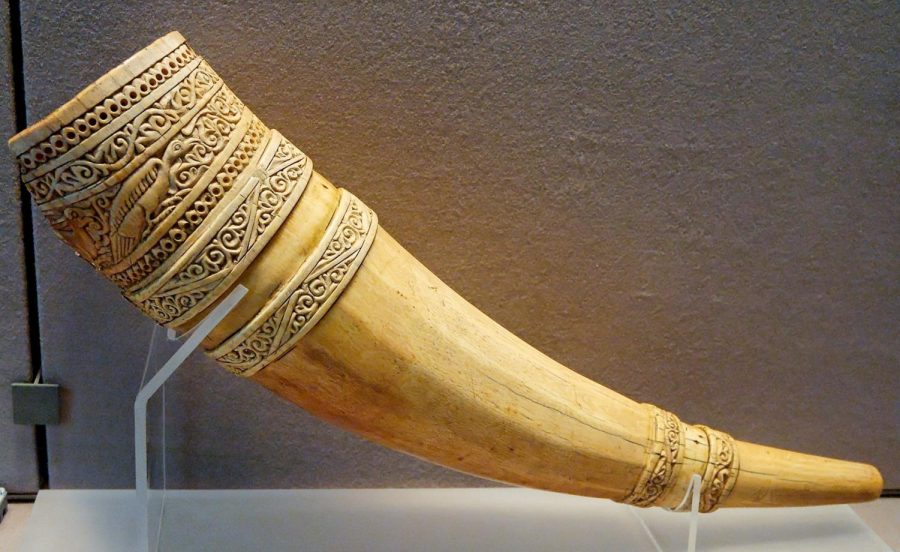Dead animals are not our trophies
Photo Courtesy of Mike Epstein
11th-century Italian carved elephant tusk.
Nov 27, 2017
The heads of dead animals are not our trophies. We do not get to decide their fate.
Last week, the Trump administration announced that it would likely reverse the Obama-era ban on the importation of elephant hunting trophies from Zimbabwe, according to a recent article from The Washington Post.
The news struck fear into animal rights activists who seek to protect dying populations of elephants throughout Africa.
In the article, reporter Darryl Fears detailed the controversy behind the decision, and how just two days after the announcement, President Donald Trump tweeted that he would be delaying this reversal, saying he finds elephant hunting to be “a horror show.”
If you’re like me — vehemently opposed to the president — then I’m sure you’re shocked at this seemingly liberal position.
Get The Daily Illini in your inbox!
Historically, though, it tracks; while President Trump’s sons, Eric and Donald Jr., bask in the glory that is the hunting and killing of innocent wildlife, the sitting president has never enjoyed it.
The evidence is in the Twitterverse, people. I can’t make this up.
However, just because President Trump does not agree with hunting and has expressed that on Twitter, his stance does not do anything of substance to protect the hunted elephant populations in Africa.
Another article from The Washington Post reported that the Great Elephant Census, an organization that tracks and seeks to preserve endangered elephant populations in Africa, “found that the number of African savanna elephants fell 30 percent in just seven years, with fewer than 400,000 remaining.”
Reporters Joshua Busby and Leo Carter further noted, “Central Africa’s forest elephants are in worse shape, with perhaps fewer than 100,000 remaining in the wild.”
These endangered elephant populations are hunted and killed for their ivory tusks due to extremely high demand from China, which makes up, as Joshua Busby states, “as much as 70 percent of the global ivory demand,” despite efforts from the Chinese government to curtail it.
And for a very small population of wealthy, Rockefeller-type Americans, this means not only the hunting and killing of elephants for their ivory, but also the importation of their heads as keepsakes.
That reality makes my stomach curdle.
What gives people the right, no matter how wealthy and how privileged, to not only take the lives of innocent elephants, but to keep their remains as property?
It’s simply disgusting. Politics and the law aside, what is obvious is that the African elephant population, or what remains of it, is a part of our Earth.
Just because this issue doesn’t strike close to home doesn’t mean it won’t affect all of us in the long run.
What kind of legacy would we be leaving for generations to come if we let these magnificent elephants die just to become trophies that hang above the mantles of the wealthy?
I cannot sleep soundly knowing that I did nothing to protect these lovely, gentle giants who deserve a free, happy and safe life just as much as you and I do.
That much is obvious to me. We must protect these elephants.
Frankly, I don’t know what I alone can do to protect them. I can rant to my friends and family, I can write this column and I can donate as much money as I can afford to conservation groups to keep them alive.
Yet I know that will never be enough. There must be some sort of education platform that seeks to inform people, across the globe, of the elephants’ plight in Africa and just how much they matter to the preservation of our entire environment.
At this moment, this issue may seem comparatively insignificant. And perhaps it is, but the moment that groups like the Humane Society International or the Center for Biological Diversity and Natural Resources Defense Council announce that all of Africa’s elephants are gone will be the moment I know I failed this Earth.
I began this column by writing that we do not get to decide the fate of the elephants. And that is true.
We can only decide ours.
Ashvini is a senior in LAS.






